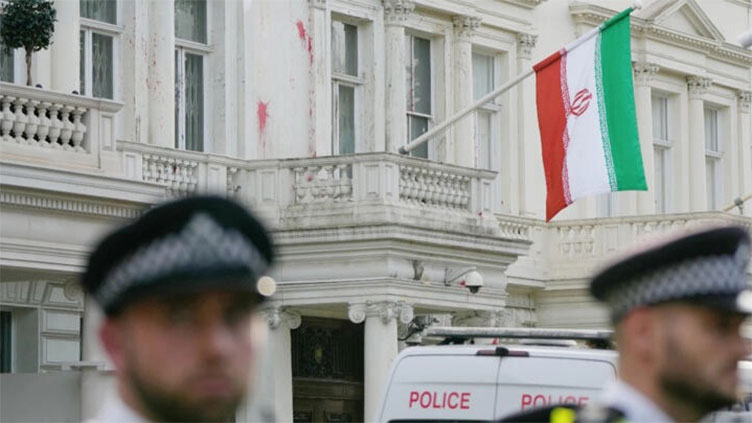Iran sentences ex-official, a British dual citizen, to death on spying charges

World
Iran has sentenced ex-official to death after convicting him on charges of spying for Britain.
TEHRAN (AP) - Iran has sentenced a former senior defence official to death after convicting him on charges of spying for Britain, state-linked media reported on Wednesday.
The judiciary said Ali Reza Akbari, who was deputy defence minister until 2001, was a “key spy” for British intelligence, the semiofficial Tasnim news agency reported. It said Iranian intelligence unmasked the spying by feeding him false information.
Tasnim also reported that he had spied on past nuclear talks between Iran and Western powers. Akbari had served as deputy defence minister under former president Mohammad Khatami, a reformist who had pushed for improved relations with the West.
Akbari s family told BBC Persian that Iranian authorities were preparing to execute him, adding that he had been transferred to solitary confinement – seen as a sign that an execution is imminent.
Alireza Akbari s wife, Maryam, said an official had asked her to come to his prison in Tehran for a "final meeting".
BBC Persian has learned that the execution of a British-Iranian citizen is imminent.
Alireza Akbari is found guilty of "spying for MI6".
The family were told to have their final meeting today before the execution, Akbari s wife told BBC Persian.
British Foreign Minister James Cleverly called for Akbari to be freed.
"Iran must halt the execution of British-Iranian national Alireza Akbari and immediately release him," Cleverly wrote on Twitter. "This is a politically motivated act by a barbaric regime that has total disregard for human life."
For several years, Iran has been locked in a shadow war with the United States and Israel, marked by covert attacks on its disputed nuclear programme. The killing of Iran s top nuclear scientist in 2020, which Iran blamed on Israel, indicated foreign intelligence services had made major inroads.
Akbari, who ran a private think tank, has not been seen in public since 2019, when he was apparently arrested.
Authorities have not released any details about his trial. Those accused of espionage and other crimes related to national security are usually tried behind closed doors, where rights groups say they do not choose their own lawyers and are not allowed to see evidence against them.
Tasnim said the Supreme Court upheld his sentence and that he had access to an attorney.
Akbari had previously led the implementation of a 1988 cease-fire between Iran and Iraq following their devastating eight-year war, working closely with UN observers.

